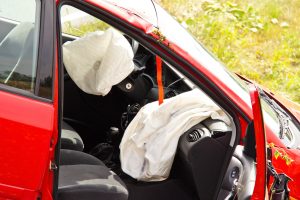
Indianapolis Emergency Towing 317-247-8484
Collisions and accidents can be scary situations, but knowing what to do gives you the power to take control of the situation and protect yourself and the people around you.
Here are some tips for what you should do after you have been in a car accident:
1. Stay Calm and Breathe.
Right after an accident it is easy to lose your cool and panic, but panicking will only heighten the severity of the situation. Don’t let shock, fear, guilt, or anger come between you and your primary goal of getting to safety. Some find it helpful to take five deep breaths and breathe slowly. Others find solace in counting backwards from ten. Do whatever works for you, so long as you are calm, because being calm allows you to be more prepared to handle the situation. While you are calming down, use this time to assess the seriousness of the accident and the environment around you.
2. Keep Yourself Safe and Anyone With You Safe.
If it is safe to get out of your car, and if you are able to do so, be sure it is a safe area, away from traffic and dangerous caverns or drop offs. If it does not appear to be safe to exit the car, or you are unable to get out, put on your seat belt, flip on your hazard lights, and call 911. If you were able to get out of your car, safely, and the car can still drive, be sure to move it out of the way of traffic and off a busy road, like on a highway shoulder or the very side of the road.
If the auto accident doesn’t seem to be major, turn your engine off and grab an emergency kit if you have one. The kit should include road cones, emergency flares, or warning triangles. If it does, put these items around your vehicle to warm others of the accident site.
Making an Accident Report
Begin checking the health condition of everyone involved in the collision or wreck. Check to see if anyone is feeling hurt or not feeling normal. If this is the case, then don’t wait another minute and call 911 Emergency. Once you get 911 on the phone, be ready to give them the following information:
– Name and phone number
– Detailed description of the emergency (Traffic Hazard, Fire, Injury, Etc.)
– Location information (City, Road Name, mile markings, traffic signs and direction of traffic, etc.)
Always remain on the phone with the 911 dispatcher until he or she allows you to hang up the line. This is for safety precautions of course.
Even if there are no injuries, you can still have the police come and make a report of the accident for insurance reasons; or if you need someone to be the mediator of a situation. The Indianapolis Police Department can help you figure out what happened and what to do next.
Write Down the Other Driver’s Information
If there are no serious injuries and it is just the cars that have been hurt, then you should be able to request contact and insurance information from the other person involved in the accident. You will need to ask for:
– Driver’s License (name, address, and driver’s license number)
– Write down the license PLATE number
– Insurance Company Card (They might have a card to give you with all the insurance info on it, if not you will have to write it all down, but always request to see their insurance information. You need the policy number and the name of insurance company)
– Car Owner Info (If the other driver is not the actual owner of the vehicle, be sure to get the actual owner’s information as well as the driver.)
Write Down a Description
Take as many notes as you can on the scene of the accident and the moments that led up to the collision. Photos are helpful as well. This helps the insurance companies determine who is at fault for the accident if there is anyone at fault at all. They will want to know what direction you were coming from and the direction the other driver was driving in, they will want to see pictures of road signs, and traffic signs around the area of the incident.
You can even draw out a rough sketch of the accident, laying out the lanes that the cars were in and the direction they took from that lane. You can also mark down the weather conditions, dates, times, and anything else that might be relevant to the causes of the accident.
All these things can only be done if the accident was not serious, like a fender bender, or bumper hit (basically if the airbag doesn’t pop out). If the accident is more serious and there are injuries, remaining in your vehicle and calling 911 is the only thing you need to worry about.
Accidents in Indiana are terrible situations, and even if you think the accident was your fault, it may not be. That is why you need to provide the police and insurance companies with as much evidence as possible so that they may determinedly fairly who was at fault.
Indianapolis Roadside Assistance

Zore’s Towing Indianapolis 317-247-8484
